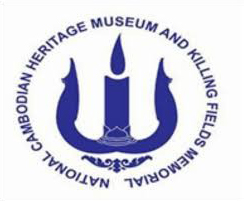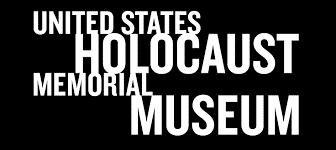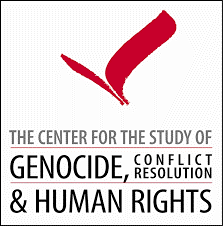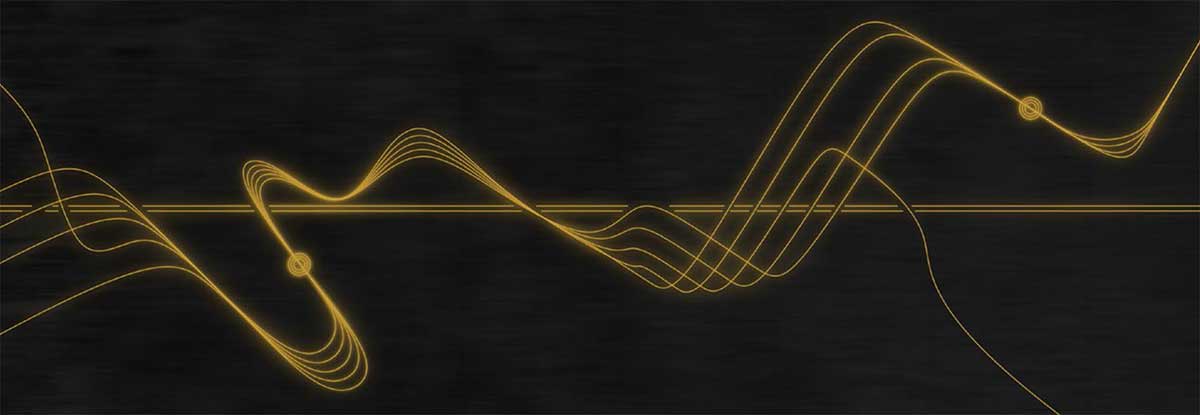|

European Union (EU) supports civil society to promote awareness and education on Khmer Rouge History.
Address:
No. 100 A, Preah Norodom Boulevard
Khan Daun Penh, 12207 Phnom Penh
PO Box 2301
Cambodia
Tel: +855 (0) 23 216996 / 211102 / 220611 / 220612
Fax: +855 (0) 23 216997
Email:
DELEGATION-CAMBODIA@eeas.europa.eu
Website:
http://eeas.europa.eu/delegations/cambodia

In collaboration with the Ministry of Education, Youth and Sport (MOEYS), the DC-Cam has been the premier proponent for Khmer Rouge history and genocide education in Cambodia since 2008. Established in 1995 to document the history of the Khmer Rouge regime, DC-Cam has been working on a wide spectrum of cultural, educational, and archival activities pursuant to achieving memory, justice, and reconciliation.
Address:
#80, Norodom Blvd.
Phnom Penh, Cambodia
Tel: +855 23 219 285
Email: info@moeys.gov.kh/
webmaster@moeys.gov.kh
Website:
http://www.moeys.gov.kh/en

Address:
National Road 4, Chaom Chau Commune
Porsenchey District, Phnom Penh
P.O. BOX 71, Phnom Penh, Cambodia
Tel: +855 (0)23 861 500
Fax: +855 (0)23 861 555
Email: info@eccc.gov.kh
Website: http://www.eccc.gov.kh

National Cambodian Heritage Museum and Killing Fields Memorial
The Museum and Memorial serves as the Cambodian national principal institution in Illinois for examining the implication of Civil War in Cambodia, especially the Khmer Rouge Regime 1975–1979, documenting the impact of the regime and exploring the continuing significance of the Civil War and Khmer Rouge regime.
The Museum & Memorial is exhibited within archaeological heart of all Cambodians -telling the story of Khmer Rouge and Killing Field through multimedia displays, archives, narratives, and collection of monumental and authentic artefacts. The lives of every victim of the 1970-1979 will be commemorated as visitors have the opportunity to learn about lives lost.
Contact person:
Mr. Paul Chhorm, Executive Director
paul-c@cambodian-association.org
Ms. Kaoru Watanabe, Associate Director
kaoru@cambodian-association.org
Address:
2831 W. Lawrence Ave, Chicago, IL 60625
Tel: +1-773-878-7090
Fax: +1-773-878-5299
Website:
http://www.cai-nationalmuseum.org/memorial/en

United States Holocaust Memorial Museum (USHMM)
A living memorial to the Holocaust, the United States Holocaust Memorial Museum (USHMM) inspires citizens and leaders worldwide to confront hatred, prevent genocide, and promote human dignity. USHMM provides for the documentation, study, and interpretation of Holocaust history.
Contact persons:
Mr. Cameron Hudson
Director, Simon-Skjodt Center for the Prevention of Genocide
chudson@ushmm.org
Address:
100 Raoul Wallenberg Place, SW
Washington, DC 20024-2126
Tel: +1-202-488-0400
Website: https://www.ushmm.org

The School of Oriental and African Studies (SOAS), University of London
SOAS, University of London is the only Higher Education institution in Europe specializing in the study of Asia, Africa and the Near and Middle East. SOAS and DC-Cam develop an academic and education cooperation to promote relations and mutual understandings between the both institutions.
Address:
Thornhaugh Street
Russell Square
London WC1H 0XG
United Kingdom
Tel: +44 (0)20 7637 2388
Fax: +44 (0)20 7898 4009
Website: https://www.soas.ac.uk

International Coalition of Sites of Conscience
A global network of historic sites, museums, and memory initiatives connecting past struggles to today's movements for human rights and social justice. The need to remember often competes with the equally strong pressure to forget. Even with the best of intentions - such as to promote reconciliation after deeply divisive events by "turning the page" - erasing the past can prevent new generations from learning critical lessons while forever compromising opportunities to build a peaceful future.
Contact persons:
Ms. Ereshnee Naidu-Silverman
Senior Director for the Global Transitional Justice Initiative
enaidu@sitesofconscience.org
Ms. Sara Bradshaw
Program Manager for the Global Transitional Justice Initiative
sbradshaw@sitesofconscience.org
Address:
10 West 37th St., 6th Fl.
New York, NY 10018 USA
Tel: +1-646-397-ICSC (4272)
/span>
Website:
http://www.sitesofconscience.org
 |
 |
| |
© DC-Cam/Daewha Kang Design, London
(2017). |
Center for the Study of Genocide and Human Rights (CGHR)
Landscapes of Truth Project (2017)
Project leader, Youk Chhang
Over the past four decades, Cambodians have lived through six regimes, including Democratic Kampuchea, the genocidal period of Khmer Rouge rule (April 17, 1975-January 9, 1979) in which perhaps 2 million people perished. During this time, Cambodians have seen a variety of truth claims made both by different governments and during international interventions, such as the Peoples Republic of Kampuchea memorialization efforts (1979), the United Nations Transitional Authority in Cambodia (1991-1994), and now the Extraordinary Chambers in the Courts of Cambodia, or Khmer Rouge Tribunal (2006-present). This project considers these truth claims in relationship to the everyday understandings and practices of Cambodians, including rural villagers, whose perspective has too often been relegated to the background. In doing so, this project speaks to broader discussion of how post-conflict societies find a path forward after genocide, mass violence, and related interventions.
Contact person:
Prof. Alexander Hinton
Director, CGHR
Professor of Anthropology and Global Affairs
UNESCO Chair in Genocide Prevention
Email:
ahinton@andromeda.rutgers.edu
Address:
360 Martin Luther King Blvd.
703 Hill Hall Newark, NJ 07102 USA
Tel: 973-353-1260
E-mail: cghr@andromeda.rutgers.edu
Website: http://www.ncas.rutgers.edu/cghr
http://ncas.rutgers.edu/projects

The Center for International Human Rights
Northwestern University School of Law (Chicago, Illlinois)
The Center for International Human Rights (CIHR) is highly esteemed for its deep commitment to and success in securing human rights for countless individuals around the globe. The Center also plays a vital role in Northwestern University School of Law’s expanding international programs. Essential efforts focus on researching and addressing emerging human rights issues as they occur, as well as providing valuable clinical experiences for students interested in the protection of human rights on a global scale.
DC-Cam collaborates with The Center for International Human Rights, Northwestern University School of Law on the Cambodia Tribunal Monitor Project. Cambodia Tribunal Monitor is a consortium of academic, philanthropic, and non-profit organizations committed to providing public access to the Extraordinary Chambers in the Courts of Cambodia and open discussion throughout the judicial process.
Address:
375 East Chicago Avenue
Chicago, IL 60611-3069 312.503.8576
Phone 312.503.8977
Fax 312.503.4472 TDD
Email: info@CambodiaTribunal.org
Website: http://www.cambodiatribunal.org
http://www.law.northwestern.edu/legalclinic/humanrights
|